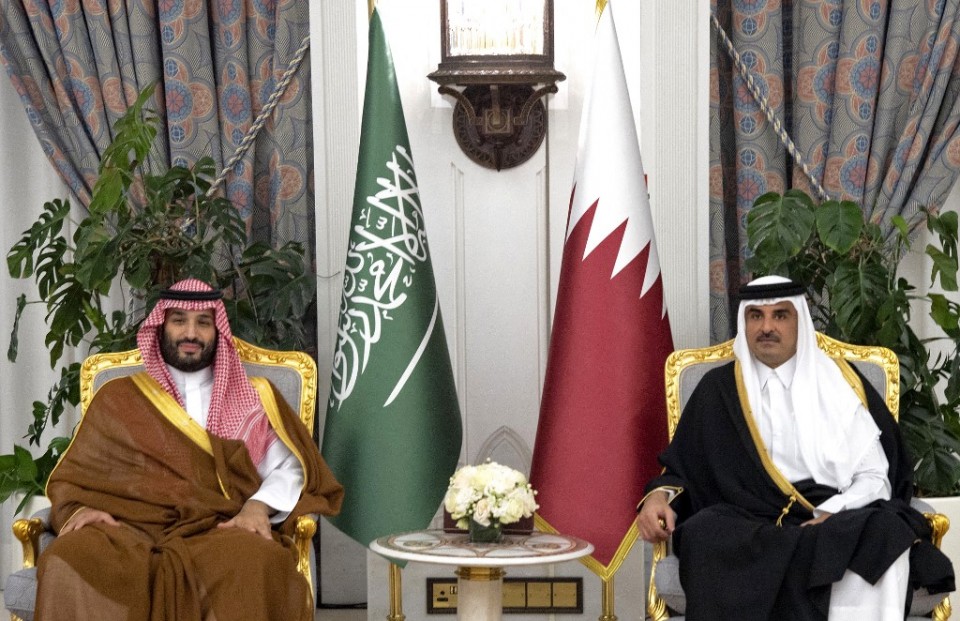
DOHA, Qatar (AFP) — Saudi Arabia’s de facto leader has discussed regional security with Qatar during his first visit since the kingdom ended a four-year blockade, official media said.
Crown Prince Mohammed bin Salman arrived late on Wednesday as part of a Gulf tour, nearly a year after relations were restored in January.
Saudi Arabia, the United Arab Emirates, Bahrain and Egypt cut ties with Doha over allegations it supported extremists and was too close to arch-rival Iran — allegations Doha denied.
During talks with Qatar’s emir, Sheikh Tamim bin Hamad Al Thani, the two sides exchanged views on “everything that would protect stability and security in the region”, the Qatar News Agency said.
The emir “stressed that this important visit will deepen the strong and historical ties, especially in light of the circumstances the region is going through,” the report added.
The two men also visited Qatar’s Lusail Stadium, which will be the venue for the final of next year’s football World Cup.
The prince has already visited Oman and the United Arab Emirates and left Qatar Thursday for Bahrain from where he is to head to Kuwait on Friday. The six Gulf Arab states will hold a summit in Riyadh next week.
Saudi Arabia is leading a military coalition against Iran-backed Huthi rebels in Yemen, in a seven-year war that has created one of the world’s worst humanitarian crises, according to the United Nations.
There have been signs this year of a thaw between Saudi Arabia and Iran, which have held several rounds of talks since April.
Prince Mohammed’s tour had been overshadowed by France’s arrest of a man suspected of involvement in the 2018 killing of Saudi journalist Jamal Khashoggi. But it turned out to be a case of mistaken identity.
Prince Mohammed has sought to position himself as a champion of modernization and reform, even as his international reputation took a hit from Khashoggi’s murder.
The crown prince has said he accepts Saudi Arabia’s overall responsibility but denies a personal link, with the kingdom saying it was the work of agents who had gone “rogue”.
© Agence France-Presse








